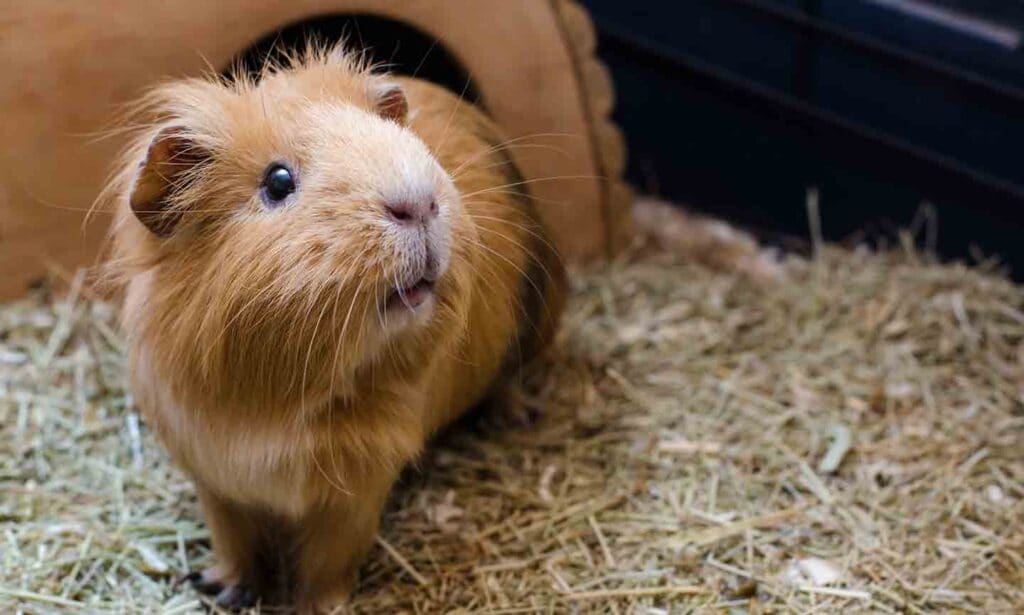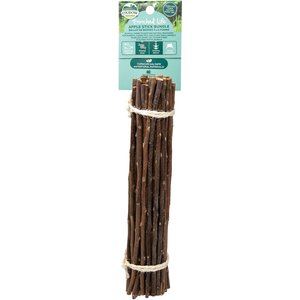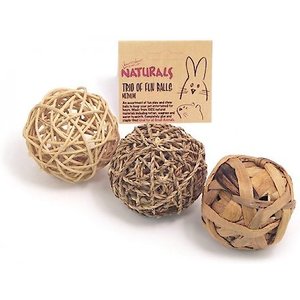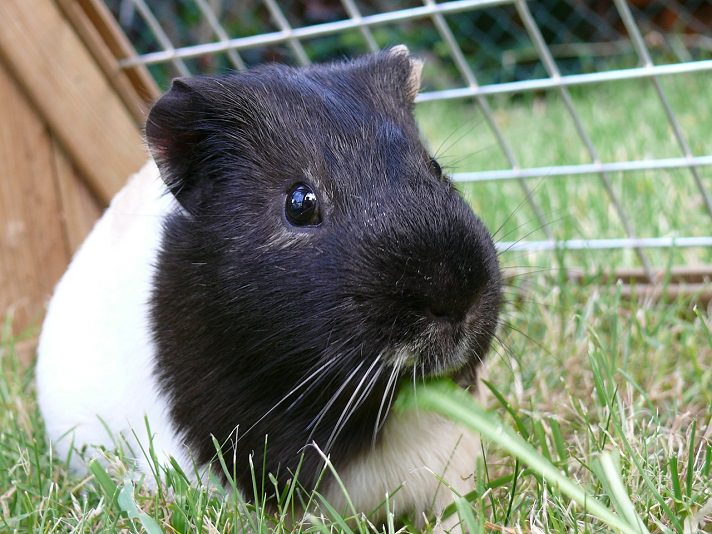Guinea pigs are one of the most popular pocket pets, with adorable looks, unique personalities, and quirky behaviors that make you giggle. It’s easy to find them in pet stores and shelters, but before you bring one home, it’s important to know you can afford to properly care for them.
So, how much are guinea pigs? We spoke with a few experts to learn about guinea pig prices and how much it typically costs to keep them as pets.
In This Guide:
Buying or Adopting Guinea Pigs
The price of guinea pigs will vary based on several factors, such as their breed, age, and place of purchase.
Pet Stores and Breeders
On average, pet stores may charge around $50 for a guinea pig. But if you want a specific guinea pig breed, such as a Teddy, Abyssinian, or Silkie, you might end up paying $100 or more, especially if you go to a reputable breeder—and the rarer the breed, the higher the price.
“Breeders may have specialty breeds or genetic lines that are different than what are offered in pet stores,” says Amanda Steinagel, DVM, DABVP (Exotic Companion Mammal Practice), DACEPM, an avian and exotics specialty veterinarian at NorthStar VETS in Robbinsville, New Jersey.
“Reputable breeders tend to charge more due to the familial lineage. They sell guinea pigs from $100 to $1,000, but it depends on the breed and the coloring,” says Kimie Smothermon, director of Guinea Pig Sanctuary in Salisbury, Massachusetts.
Shelters and Rescues
Many guinea pigs of all ages are available for adoption in shelters and rescues. Valerie Warren, CEO and co-founder of Southern California Guinea Pig Rescue, asks for a $35 donation for a single guinea pig, but you need to already have at least one guinea pig at home. Otherwise, you can get a pair or a trio of them for $65.
Smothermon’s rescue has similar adoption fees. If you already have at least one at home, you can adopt a single guinea pig for $30, or you can get a pair for $50. “We also include what we can with the adoption, such as a water bottle, food bowl, house, toys, etc.,” she says.
Essential Setup Expenses
Guinea pigs do best in pairs or groups, so you should get at least two. Before bringing them home, make sure you have the following supplies:
Cage and Habitat
A secure enclosure should have everything your guinea pigs need, and should be large enough for them to move around and feel comfortable. A cage that’s at least 8 square feet is recommended for two guinea pigs, but bigger is better.
Choose a well-ventilated, horizontal guinea pig cage with a solid and nonslip floor. “Wire floors predispose to limb injury, pododermatitis (sore hocks) and/or trauma,” says Dr. Steinagel.
Depending on the brand and size of the cage, you could spend several hundred dollars.
Bedding and Substrate
Paper bedding or fleece can be used for soft substrate in your guinea pigs’ cage. Smothermon advises against using wood bedding, because it can make guinea pigs sick or get stuck in their eyes. Dr. Steinagel also says to avoid pine and cedar shavings, because they can cause respiratory issues.
“Under the bedding, we put a puppy pad so that cleanup is easier,” says Smothermon.
You can also train your guinea pigs to use a litter box that is filled with hay, newspaper, or pelleted litter that’s safe for guinea pigs.
Food and Water Supplies
Guinea pigs eat a variety of foods, such as hay, vegetables, fruits, pellets, and treats.
“Ninety percent of their diet is timothy hay, so it should be refreshed throughout the day,” says Smothermon. “Other hays (botanical, meadow, grass) are more of a treat and should be an addition to the timothy hay.”
A sturdy food bowl will keep your guinea pigs’ food clean and easy to access. Choose one that’s made of safe and durable materials.
Clean, fresh water should be available at all times. You can use a water bottle or bowl made for guinea pigs. Bowls should be sturdy enough that they won’t be tipped over.
Toys and Enrichment
Chew toys are necessary for guinea pigs because their teeth don’t stop growing. Chewing on hard, safe objects like apple sticks and toys specifically made for guinea pigs will prevent their teeth from becoming overgrown.
Also give your guinea pigs hiding places, such as huts, paper bags, tunnels, or cardboard boxes. You can even put some treats in these to provide enrichment.
Grooming Supplies
To keep your guinea pigs looking and feeling great, you can use grooming supplies designed for these small pets.
Trim your guinea pigs’ nails with nail clippers, and brush their fur with a small comb or brush. If your guinea pigs get very dirty, you can use a gentle shampoo designed for guinea pigs.
Veterinary Care
Your guinea pigs will need an exotics veterinarian for checkups and care if they get sick or injured. You can find veterinarians by searching online, or you can contact local small-animal rescues that might give you referrals to veterinarians they trust.
The price of a vet visit will depend on factors like your location and the exotics veterinarian you use, as well as the diagnostic tests that are done and medications that are prescribed. The cost could range from around $100 for an annual wellness visit to several hundred dollars for a sick visit or after-hours emergency visit.
Common Costs of Bringing Home a New Guinea Pig
Cage and habitat
$100–$300
Bedding and substrate
$20–$50
Food and water supplies
$50–$75
Toys and enrichment
$50
Grooming supplies
$15
Veterinary care
$500
Total:
$735–$990
Ongoing Guinea Pig Costs
Once your guinea pigs are a part of the family, there will be ongoing costs to ensure they remain healthy and happy. The main expenses to consider include:
Regular Food Costs
Feeding your guinea pigs a high-quality diet is a key component to helping them stay strong. Costs will vary by location, but you can generally expect to spend $30–$50 on pellets, $20–$50 on vegetables, and $40–$60 on timothy hay for a pair of guinea pigs each month, according to Smothermon.
Health Supplements
Your veterinarian might recommend supplements for your guinea pigs based on their health and age. However, one supplement that all guinea pigs can benefit from is vitamin C: Their bodies can’t make it, and they need to get it from their diet.
In addition to feeding a diet rich in vitamin C, you can purchase supplements to ensure your guinea pig gets enough of this nutrient daily. Vitamin C treats make it simple, and they’re very affordable, usually priced around $10 or less.
Cleaning and Upkeep
Spot-cleaning your guinea pigs’ cage daily and doing a complete cleaning weekly will keep their enclosure sanitary and odor-free. This includes replacing their bedding, which might cost around $30 per month.
In addition, you’ll need to replace toys, hideouts, and bowls as needed. The amount of supplies you’ll go through will depend on how large the enclosure is and how many guinea pigs you have.
Veterinary Care
It’s important to have your guinea pigs seen by a veterinarian if they start showing symptoms of illness, such as changes in appetite, weight loss, breathing difficulty, lethargy, or digestive issues. It’s also best to have them examined yearly.
It’s easier to predict the cost of annual wellness exams than unexpected vet visits for injuries, illnesses, or emergencies. Dr. Steinagel says if a guinea pig has a chronic disease, it could cost $1,500–$3,000 yearly, while the cost of annual vet care for a healthy guinea pig may be $500–$600.
Annual Costs of Keeping a Guinea Pig
Regular food costs
$1,080–$1,920
Health supplements
$120
Cleaning and upkeep
$360
Veterinary care
$500–$3,000
Total:
$2,060–$5,400
Budgeting Tips for Guinea Pig Parents
Providing the best care to guinea pigs could cost thousands annually, but because they make wonderful family pets and are great pets for kids, they’re more than worthwhile. And if you’re on a budget, there are ways to save money.
Shop Smart
Warren recommends buying hay and pellets in bulk. Often, you’ll get a better price on a product if you buy more of it at once. It’s also a good idea to shop around for the best prices.
Have a Savings Account or Pet Insurance
Because they require specialty care, trips to the vet with a guinea pig can be surprisingly expensive. If you can, set aside some money each month to cover unexpected costs. A savings account with funds you can tap into as needed will give you peace of mind.
A pet insurance plan that covers guinea pigs can be a smart way to reduce your out-of-pocket costs when you need to see the veterinarian. Read the fine print to know exactly what’s covered.
But before you decide to become a guinea pig parent, consider if you’ll be able to cover their long-term costs, which include high-quality foods, cage supplies, and specialized vet care. When you can afford to properly care for guinea pigs, you’ll enjoy years of fun and companionship with these social and cuddly pets.
Share:























